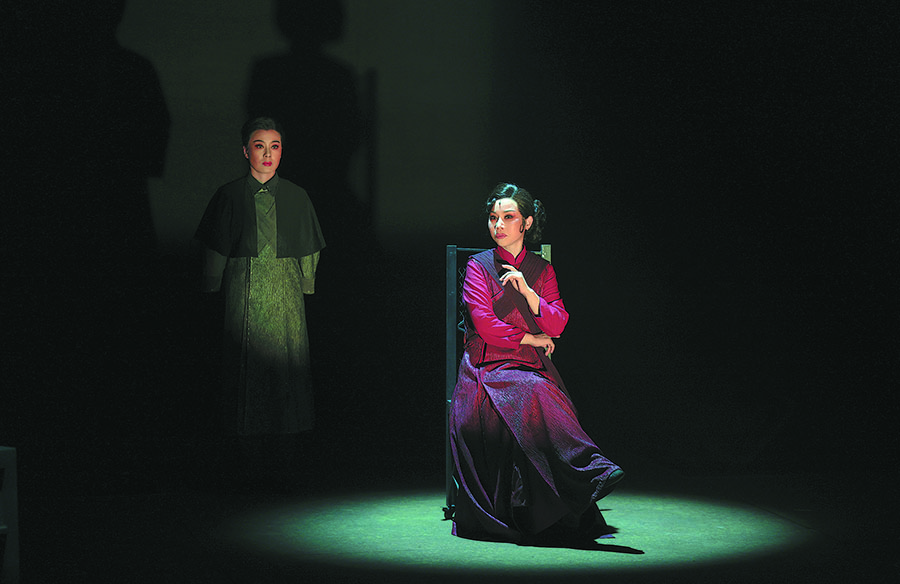

Chinese opera festival continues to tinker with historical forms of art, Chen Nan reports.
When the audience walked into Star Theatres one Saturday night recently, they were presented with an unusual sight. The stage had been transformed into a courtroom and the audience, who sat on three sides, were not merely observers but active participants in the exploration of themes that resonated deeply — love, betrayal and redemption.
They were attending a contemporary production of the Yuju Opera Resurrection, which had its Beijing premiere on Oct 11. The performance opened the 11th edition of Xiqu Opera Black Box Festival, which is a showcase of contemporary presentations of traditional Chinese operas. The festival runs until Dec 31.
Small theaters have become trendy venues for young people in urban areas to get a taste of traditional Chinese opera with a contemporary twist — changes to anything from the method of storytelling, to the music, stage design and costumes. With three auditoriums, each with a capacity of about 200, Star Theatres was the first venue of its kind in Beijing and since it was founded in 2007, it has become a center of attraction for drama aficionados in search of experimental productions.
For artists striving to popularize theater among the young, such venues are a platform on which to experiment with new technology, explore the psychological portrayal of characters, and enhance appreciation of Chinese operatic genres among the young.
Adapted from the last novel written by Leo Tolstoy in 1889, the Chinese stage production of Resurrection features veteran Yuju Opera actors, giving both the novel and the opera a contemporary twist.